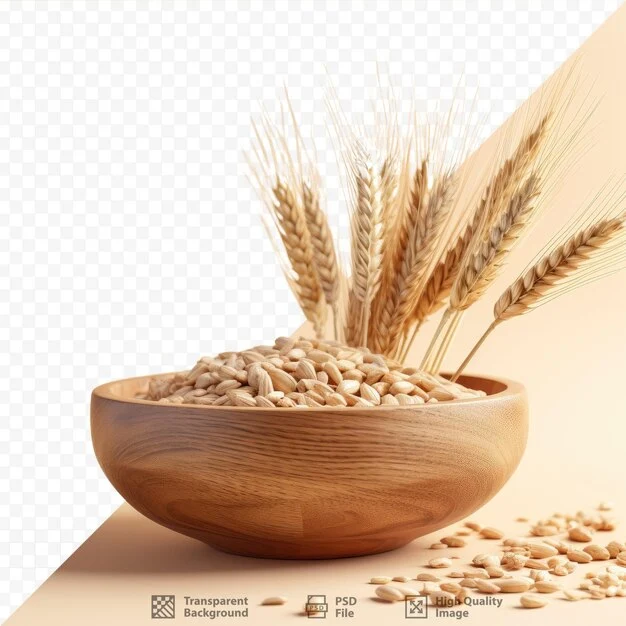The interest in the bulgur industry is due to Bulgur, with its nutritional richness and culinary versatility, has been a valued component of Middle Eastern cuisine for centuries.
This whole grain, derived from various wheat species, is celebrated for its adaptability in myriad recipes. This article offers a comprehensive insight into the bulgur industry, exploring quality controls, innovative production methodologies, and industry standards, providing valuable knowledge for food manufacturers and businesses aiming to venture into the realm of bulgur production.

Table of Contents
A Snapshot of the Bulgur Industry:
The resurgence of the bulgur industry is attributed to the rising global inclination towards health-centric food choices. The ever-growing demand for whole-grain and nutritious products has spurred significant growth in this sector. Modern bulgur producers are concentrated on sustaining high-quality outputs, diversifying product lines, and implementing sustainable and innovative practices, areas where our consulting services can provide expert guidance and support.
What are the types of bulgur? Why are the types different?

Types of bulgur differ depending on the wheat grains from which they were extracted. We will detail that:
Whole wheat is used to make bulgur, as the grain is rich in fiber and other nutrients. Specific types of whole wheat are selected for great flavor and high nutritional value.
Hard wheat:
Durum wheat is one of the preferred types for producing bulgur. It has a high percentage of gluten, which makes it ideal for making bulgur, which retains its consistency and texture when cooked.
Red wheat:
Red wheat is distinguished by its dark color and unique taste. It is used in preparing specific types of bulgur that are especially popular in some regions.
White wheat:
White wheat is one of the options available for making bulgur, as it is prepared by removing the outer layer of the grain. It has a mild and distinctive flavour.
Organic wheat:
Many people prefer to use organic wheat in preparing bulgur, as it is grown without the use of harmful chemicals and respects the principles of organic farming
Upholding Quality in the Bulgur Industry;
Quality assurance is integral in bulgur production, spanning across all facets of the manufacturing process, from raw material selection to the final packaging.
The quality of bulgur is contingent on several critical factors:
To obtain a good bulgur product, the factors involved in its manufacture must be evaluated and its quality controlled
Selection of Raw Materials:
Choosing the right wheat, typically Durum, is crucial due to its enriched protein content and optimal gluten properties, a critical aspect where our consultants can offer insights and expertise.
Processing Techniques:

Every step in the process, including cleaning, parboiling, drying, and milling, is scrupulously monitored to retain nutritional value and achieve the desired product texture.
Packaging Innovations:
Our consultants on ProNano can advise on packaging solutions that protect against contaminants, ensuring prolonged freshness and shelf life.
Innovative Bulgur Production Methods
Bulgur production is a meticulous process, aimed at preserving its nutritional integrity.
Initial Cleaning and Sorting:
This step ensures the removal of impurities and categorizes grains, a stage where precision is crucial.
Parboiling Excellence:
Optimal parboiling is crucial for flavor and texture, and our consultancy can provide expertise in achieving perfection.
Drying Technologies:
Advanced drying technologies are crucial for maintaining product integrity, an area we specialize in advising.
Milling and Sieving Solutions:
Uniformity in product size is achieved through professional milling and sieving, ensuring high-quality end products.
Bulgur’s Global Culinary Presence

Bulgur’s global appeal is evident in its incorporation in various international dishes. Its high fiber and protein content make it a preferred choice among health-conscious consumers, highlighting the potential for manufacturers to innovate and diversify their product portfolios with the assistance of experienced consulting services.
The bulgur industry, with its emphasis on quality and innovation, stands as a testament to the endless possibilities in the food manufacturing sector. It offers a spectrum of opportunities for manufacturers aiming to contribute high-quality, nutritious, and versatile food products to the global market. For businesses aspiring to elevate their presence in the Bulgur industry, our consulting services can provide the necessary insights, expertise, and innovative solutions to navigate the complexities of Bulgur production and market penetration successfully.
Explore the limitless potential in this industry with ProNano food processing consulting company. Whether you are a manufacturer aspiring to refine your production processes or a new entrant aiming to carve a niche in the Bulgur sector, our consulting services are designed to guide you through every step of your journey, ensuring your venture’s success in the competitive food manufacturing landscape.
Contact us today to learn how our expertise can transform your bulgur production endeavors into successful market realities.

